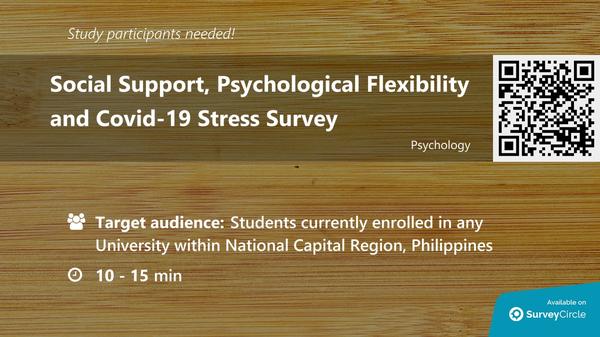Objective
Miscarriage is a common type of pregnancy loss that affects one in five pregnancies (15–20%) [1,2,3,4,5,6,7,8]. One in a hundred couples experience consecutive miscarriages (recurrent miscarriage, [9, 10]). While trans/masculine and non-binary people also experience miscarriage [11, 12], the remainder of this paper will focus on the experience of cisgender women, given that this was how the participants in our study identified.
Previous studies identified the importance of social support for the well-being of those who have miscarried (e.g., [13]), and described the experience of social support after miscarriage (e.g., [14]). In this study, we investigate the social support needs for those who have miscarried from a holistic perspective that integrates formal and informal care networks, and the role of online spaces in social support provision. The results support formal modelling for health service design that can connect women to appropriate sources of social support seamlessly, while preserving confidentiality.
Specifically, our research questions are:
- 1.
Who are the key people in the care network of women who have miscarried?
- 2.
How do women use social support and communicate with their care network to cope with miscarriage?
- 3.
How can eHealth solutions be leveraged to improve communication about social support?
Miscarriage and women’s wellbeing
Although miscarriage is an unpredictable event, those who have miscarried often view it as a personal failure. They may blame and punish themselves and cite their lifestyle and habits as a cause [15,16,17,18]. Up to 5% of women who have miscarried experience post-traumatic stress symptoms [19]. The loss can trigger anxiety and depression [20], anger, and the urge to self-harm [19]. Women may grieve deeply for years after miscarriage [21, 22], and the grief reaction can be as intense as that due to perinatal death [8, 15, 16, 23,24,25].
Appropriate social support for women who have experienced a miscarriage can provide a much needed boost to their wellbeing both in the short term and in the long term [19, 26]. The more satisfied women are with the level of support received, the less likely they are to experience mental health issues [13, 22, 27, 28]. Unfortunately, many women are unhappy with the support they receive from their care network after their loss [13, 29].
While previous studies identified the importance of social support for the physical and psychological wellbeing of women who have miscarried, little is known about the dimensions, amount, and categories of appropriate social support needs of women who have miscarried. In particular, there is a need to identify which social support is preferred or desired, and by which members of women’s care networks it should be provided.
Dimensions of social support

Social support has been defined as “verbal and nonverbal communication between recipients and providers that reduces uncertainty about the situation, the self, the other, or the relationships, and functions to enhance a perception of personal control in one’s experience” [30, p. 19]. Social support is most effective when it matches the needs and preferences of the people who require it, and is perceived by them to be helpful [31, 32]. For the purpose of this study, we adopt a definition of social support [32,33,34,35,36,37,38] that has proved useful in previous studies of online social support for people living with rare diseases [39] or stigmatised conditions, such as being HIV positive [40].
Following [33], there are two main types of social support, action-facilitating and nurturant. Action-facilitating support is intended to eliminate or actively solve the problems faced by the person who needs support which includes informational and tangible types of support. Nurturant support is intended to provide consolation and comfort without actively solving the problem or facilitating action which includes emotional, esteem, and network types of support. Table 1 presents an explanation of each of those sub-types of social support [33, 34, 41,42,43,44].
Care networks as a source of social support
Social support may be provided through Formal and Informal care networks. Formal networks include professional service providers, such as doctors, obstetricians, midwives, and therapists, who are professionally trained and paid for their work. The informal care network involves those who are in a social relationship with the person who receives care and who are not paid for their work, such as family, friends and communities [45,46,47,48,49].
In practice, social support for those who have miscarried is often inconsistent or insufficient [8]. Communication between those who have miscarried and their care network, including health care providers, is often difficult [50,51,52,53]. A major barrier to receiving appropriate social support is that care network members often do not understand the emotional complexities involved, and prioritise physical wellbeing over psychological needs [19, 53]. While those who have experienced miscarriage seek emotional support by talking to their care network after miscarriage, they often feel unable to express the negative emotions related to their loss, and wish their care network would be more sensitive [20, 54, 55]. This is partially due to the silence surrounding the topic of miscarriage [56]. As a result, miscarriage continues to be stigmatised and misunderstood [57].
There are many sources of specialised social support for miscarriage, such as counselling, supportive listening [58], and in-person support groups [59]. However, a single intervention is typically not enough. There may also be long waiting lists for interventions, such as counselling. In-person services can be hard to access if the person who has experienced miscarriage has responsibilities that prevent access [60], such as caring for a family member or rigid work schedules.
eHealth for miscarriage support
eHealth is a promising alternative for those who find accessing in-person services difficult [61]. Kersting et al. [62] evaluated an internet-based psychotherapy programme with people coping with a pregnancy loss. The system facilitated anonymous and asynchronous communication across a wide geographic area. The level of grief for women who miscarried decreased immediately after the treatment and depression symptoms decreased during the 3-month follow-up session [62]. Recent relevant systematic reviews [63, 64] show that Kersting et al.’s programme is still the only eHealth psychosocial support intervention for women who have miscarried that has been assessed in a randomised controlled trial.
Women who experience miscarriage also use online discussion forums to seek support and information [29, 65, 66]. On such online forums and other social media platforms, disclosure of information is usually managed carefully. Andalibi et al. describe the phenomenon of “network-level reciprocal disclosure” (NLRD), where once an individual observes others’ disclosure, they are motivated to disclose in a safe space within their network [57]. Building on this work, Andalibi and Forte [67] designed a prototype mobile application which embodies the NLRD model using pregnancy loss as a case study. However, it is not clear how solutions such as NotAlone, which emphasise the informal care network, would integrate with more standard models of care [64], which emphasise the formal care network and focus on counselling.
Shifting towards a circle of care model
The Circle of Care Model (CCM) provides a coherent framework for integrating formal and informal care networks. CCM was first developed as a user requirements elicitation method to improve palliative care for patients at the end of their lives [68]. The person who receives support and care is firmly placed at the centre of their own Circle of Care, and those who give care, be it formal or informal, are then linked to the person in the centre by role [68, 69]. A CCM covers four elements [70], which are related to each other through a patient and their needs:
- 1.
The person,
- 2.
The people that are involved in that person’s care (providers),
- 3.
The communication between network members (person and providers), and
- 4.
The information repositories that store information about that person.
CCM has been successfully used to model the coordination of complex networks which involve continuity of care [70, 71]. It is useful for highlighting gaps in communication, both between providers and between providers and the person at the centre, which can lead to adverse events [72]. In this paper, we focus on the providers of social support, and on the communication between the woman who has miscarried and her network of formal and informal providers. Aspects of our work that are relevant to information repositories are discussed in more detail elsewhere [73].









